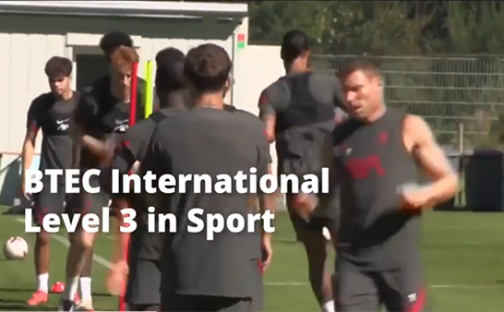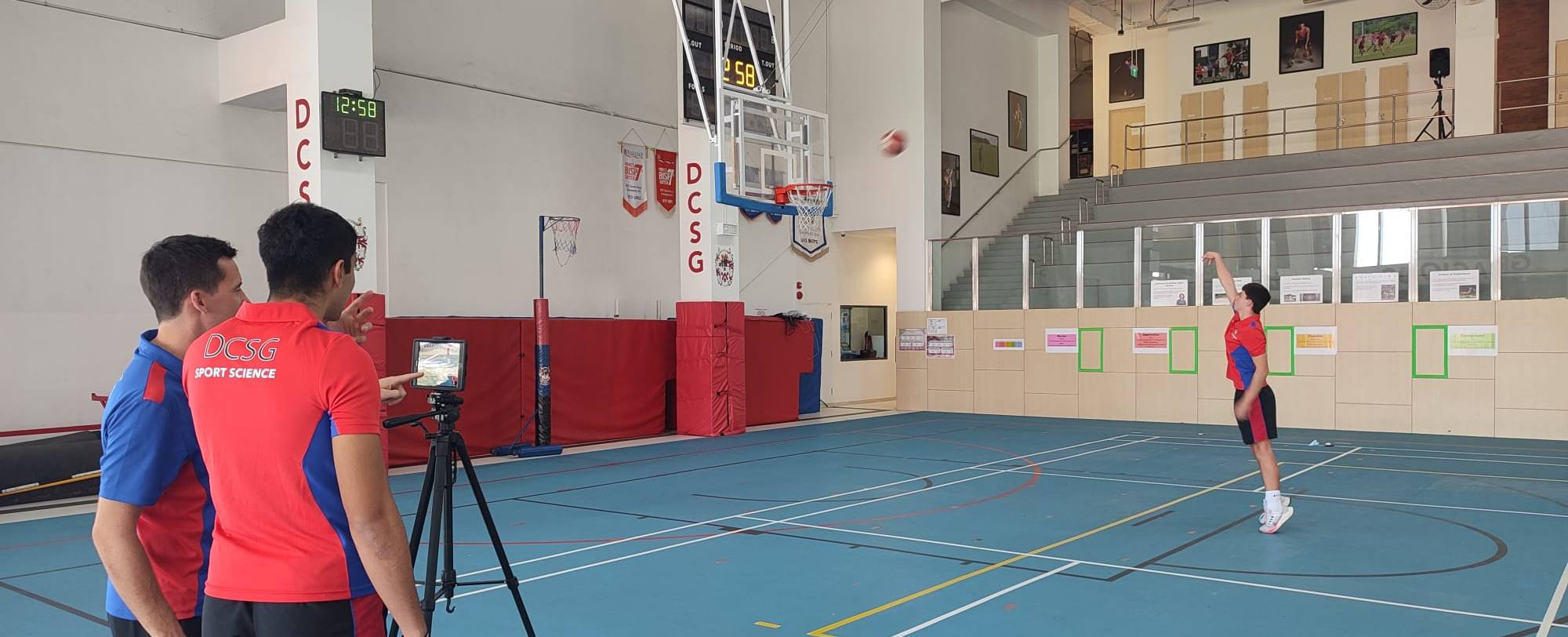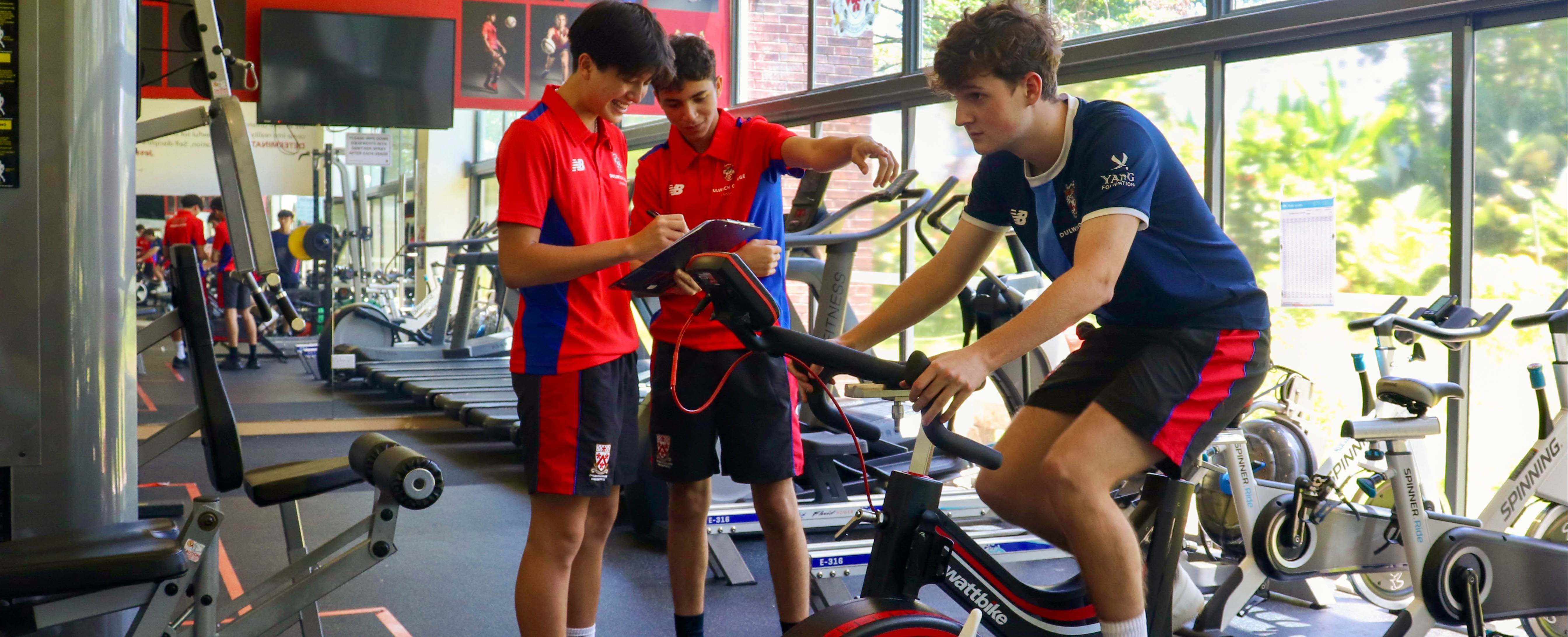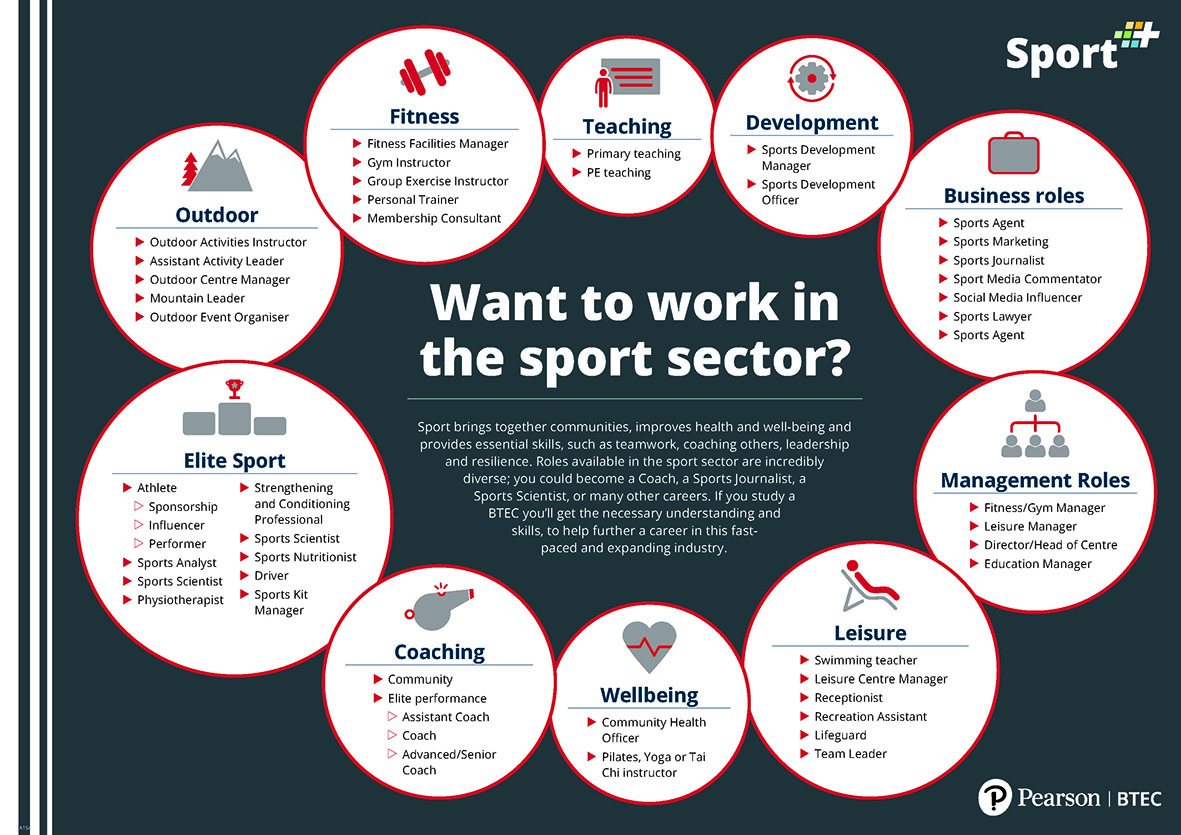IBCP: Sports


Learn more about the IBCP Sports pathway in this short video presentation
Why Choose This Course?
Scoring a goal, breaking a school record, pushing yourself to your limits, using your skills to push the team… If this is something that excites you then the sports pathway is for you. The pathway is designed to allow students with a passion in sports to explore a range of skills leading to diverse careers opportunities such as management of elite athletes, events management in sport, or exciting careers in the leisure industry.
About the Course
Pearson International offer a wide range of qualifications such as GCSE, A-Levels and BTEC. The course with BTEC International Level 3 Diploma in Sport is designed to develop the skills and knowledge needed to progress to higher education or directly into employment and is well-recognised in the industry. The course will be delivered by our dedicated and inspiring staff at DCSG using established links within the sports and leisure industry in Singapore.
Click here for more details.

Curriculum
In the Sport pathway students will explore a range of professional skills designed to develop a career in a sports related industry through the following units:
Health, Wellbeing and Sport
In this unit, students will examine the importance of physical activity and sport in the context of physical health. They will also explore the impact of physical activity and sport on mental health and social wellbeing as well as undertaking health and wellbeing screening in order to provide feedback to improve health status and encourage participation in sport and active leisure.
Careers in Sport and Active Leisure Industry
This unit will explore the organisation of the sport and active leisure industry and its provision in Singapore. As well as investigating careers in the sport and active leisure industry, students will explore recruitment processes within in the sport and active leisure industry and reflect upon their own personal and professional skills in order to prepare for a career in the sport and active leisure industry.
Applied Sports Anatomy and Physiology
In this unit, students will examine the function of the musculoskeletal, cardiovascular and respiratory systems and how they respond to exercise. Students will also investigate the different types of energy systems and how they are used in exercise.
Sport Development
This unit will allow students to investigate sport development in practice by examining concepts in sport development and by looking at case studies involving the key providers of sport development
Practical Sports Performance
In this unit, students will explore skills, techniques and tactics required in selected sports, learning how to use skills, techniques and tactics in an individual or team sport. They will also work on reviewing their own performance in an individual or team sport to inform future development
Sports Tourism
Students will explore the characteristics and the economic, social and environmental impact of sports tourism as well as investigating the opportunities, demand and requirements for a sport tourism enterprise. Students will also have the opportunity to develop and present a plan for a sports tourism enterprise.
Sports Injuries Management
In this unit, students will explore different types and causes of common sporting injuries and how they affect sports performers as well as the risk factors for the management and prevention of common sporting injuries. They will also develop treatment and rehabilitation programmes for common sporting injuries.
Nutrition for Physical Performance
Students will examine concepts of nutrition, hydration, diet and digestion and explore energy intake and expenditure for sports and physical activity. They will also investigate legislation, guidance and procedures associated with anti-doping as well as producing a diet and hydration plan to support a selected sport or physical activity.
Business in Sport
Students will investigate the use of business and customer service skills as well as business-related legislation and organisational procedures in the sport and active leisure industry. Students will also explore the use of technology to improve customer service for sport and active leisure organisations.
Organising Events in Sport and Physical Activities
Students will explore considerations of sport and physical activity events in order to plan and promote a sport or physical activity event. This will give students the opportunity to deliver a planned sport or physical activity event and reflect upon their achievement
Influence of Technology in Sport and Physical Activity
In this unit students will explore how different types of technology are used in sport and physical activity as well as investigating the role of technology in improving sport and physical activity performance and experience. They will propose a strategy to improve performance or experience in a selected sport or physical activity.
Diploma Programme Courses
Students following the Sport course would take 3 Diploma Courses with a recommendation of two at Higher Level and one at Standard Level. It is expected that one of these would be from Group 3, such as psychology, geography, global societies, business management, global politics or history and one would be from Group 4, such as Biology or Sport and Exercise Health Science (SEHS). The remaining course would be either a second science or a humanities course.

Possible Career Pathways
This qualification supports progression to job opportunities in the sports industries at a variety of levels. Examples of job roles available in sports areas include:
- Sports agent
- Sports development officer
- Sports coach
- Sports nutritionist
- Sports event management
- Sports performance analyst
- Physiotherapist / sports massage
- Leisure management
- PE teacher
- Personal trainer
- Sports psychology
After achieving these qualifications, while learners can progress directly to entry-level assistant coaching roles, it is likely that many will do so via higher study. These qualifications are recognised by higher-education providers as contributing to meeting admission requirements to many relevant courses in a variety of areas of the sport sector, for example: BA (Hons) in Sports Coaching and Development, BA (Hons) in Sports Management, BA (Hons) in Sport and Physical Education, BA (Hons) in Health and Fitness, BA (Hons) in Diet, Fitness and Wellbeing, BA (Hons) Sports Business Management, BA (Hons) Stadium and Sports Facility Management, BSc in Community Sports Coaching, BSc in Sports, Physical Education and Teaching Science. You should speak to your University Counsellor to discuss the requirements for further study.





